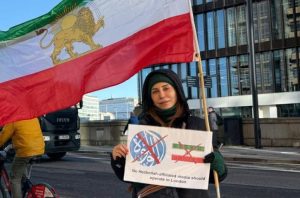Israel’s offensive in Iran breaches the Geneva Conventions

On 13 June, Israel launched a series of coordinated airstrikes on multiple Iranian nuclear facilities and military installations. Reports indicate that the operation also involved the targeted assassination of nuclear scientists and senior Iranian military officials. According to preliminary figures, the attacks killed about 70 Iranians and injured more than 320.
In swift retaliation, Iran’s Ayatollah Ali Khamenei condemned the strikes as a criminal act, stating that Israel had “opened its dirty and bloody hand to a crime” by deliberately targeting civilian areas. He warned, “The powerful hand of the armed forces of the Islamic Republic will not let Israel go unpunished.” Iranian military spokesperson Abolfazl Shekarchi echoed the threat, warning that Israel would pay a “heavy price” for its actions.
Israeli Prime Minister Benjamin Netanyahu defended the operation as a strategic effort to degrade Iran’s nuclear programme and its ballistic missile production. Israeli military chief Eyal Zamir described the strikes as a turning point, claiming that Israel had reached a “point of no return” in a “fight to preserve our existence”.
But this narrative has drawn sharp criticism. Increasingly, Israel’s invocation of a “right to exist” is viewed as a hollow justification. Critics argue that Israel’s portrayal of itself as a perpetual victim serves to deflect accountability, even as it continues to occupy and destabilise the Middle East. If Israel feels threatened, it is a consequence of its own sustained aggression and regional occupation.
Israel’s assault on Iran cannot be divorced from Tehran’s longstanding support for the Palestinian cause. As a central pillar of the “Axis of Resistance” — a regional alliance that includes Hezbollah in Lebanon, Syria, various Iraqi militias and the Yemeni Houthis — Iran has consistently backed armed and political groups resisting Israeli occupation and Western influence. This support, especially its material and strategic assistance to Palestinian factions in Gaza and the West Bank, has long made Iran a target of Israeli hostility.
Analysts suggest that the June 2025 strikes were not merely pre-emptive attacks on nuclear infrastructure, but also punitive measures intended to weaken Iran’s capacity to support Palestinian resistance. Israel’s actions signal an attempt to fracture the regional coalition that has coalesced around opposition to Zionist expansionism and US hegemony in the Middle East. In this context, the offensive appears not as an isolated act of self-defence, but as a broader geopolitical move to dismantle the Axis of Resistance and deter solidarity with Palestine.
Despite its declared military objectives, Israel’s airstrikes caused significant damage to residential areas and civilian infrastructure in Tehran, raising serious concerns under international humanitarian law. These actions violate the principle of distinction, which prohibits attacks on civilians and civilian objects; the principle of proportionality, which forbids excessive civilian harm relative to anticipated military advantage; and the obligation to take precautions in attack to minimise civilian casualties. Civilian infrastructure is protected under Article 52 of Additional Protocol I to the Geneva Conventions.
Moreover, Israel has not demonstrated lawful self-defence under Article 51 of the UN Charter, meaning the operation constitutes an unlawful use of force. These violations amount to war crimes under the Rome Statute of the International Criminal Court, which prohibits the deliberate targeting of civilians and disproportionate attacks.
The Atomic Energy Organisation of Iran confirmed that radioactive contamination caused by the attack on the Natanz uranium enrichment facility was successfully contained and reported no casualties at the site. Nonetheless, the targeting of nuclear sites poses grave humanitarian and environmental risks, including potential radiation leaks and contamination with effects that can last for centuries.
Confirmed targets of the Israeli operation included:
- Tehran, including nearby military facilities;
- Natanz, where the main uranium enrichment facility was hit;
- Tabriz, near a nuclear research centre and two military bases;
- Isfahan, located south of the capital;
- Arak, in southwestern Iran; and
- Kermanshah, near the Iraqi border, where an underground ballistic missile depot was struck.
Following the attacks, Israel’s military issued a warning: “Anyone who tries to challenge us will pay a heavy price.” This statement reinforces Israel’s image as a belligerent state that disregards core principles of international law, including those recently affirmed by the International Court of Justice.
The International Atomic Energy Agency (IAEA) has confirmed that the Natanz site was hit, and its director, Rafael Grossi, stated that the UN is monitoring radiation levels and is in contact with Iranian authorities and on-site inspectors. But the IAEA has yet to acknowledge Iran’s official nuclear policy, which emphasizes peaceful nuclear technology, a nuclear weapons-free Middle East, and adherence to Khamenei’s fatwa banning nuclear weapons.
This transparent stance stands in stark contrast to Israel’s ambiguous and undisclosed nuclear arsenal. In 2023, former Israeli minister Amichai Eliyahu openly suggested that using nuclear weapons against Gaza was “an option,” later adding that Gaza had “no right to exist” and threatening all those supporting Hamas or Palestine. Although Eliyahu was indefinitely suspended from the government, his remarks strongly imply that Israel not only possesses nuclear weapons, but also entertains their potential use.
These developments raise urgent questions about the absence of international nuclear inspectors in Israel, and the inadequate response from the IAEA and the UN Security Council. As Iranian Foreign Minister Hossein Amirabdollahian stated: “The UN Security Council and the International Atomic Energy Agency must take immediate and uninterrupted action to disarm this barbaric and apartheid regime.”
The international response to Israel’s assault has once again exposed the deep double standards of Western powers. While Western governments have swiftly condemned similar or lesser actions by other states — often invoking human rights, international law, and the UN Charter — they remain largely silent or issue only tepid statements when it comes to Israel. The same actors that vocally denounce aggression elsewhere have repeatedly shielded Israel from accountability, even in the face of clear violations of international humanitarian law.
This selective outrage not only undermines the credibility of international legal norms but also emboldens Israel to act with impunity. The disparity in response highlights a geopolitical bias where the rules-based international order is applied unequally and used as a weapon against adversaries, but disregarded when violations are committed by allies or strategic partners.
In failing to hold Israel accountable, the international community risks legitimising the suppression of resistance movements and entrenching cycles of impunity and occupation across the region.
Sõzarn Barday is a writer and attorney based in South Africa and has a particular interest in human rights in the Middle East. Opinions shared represent her individual perspective.



